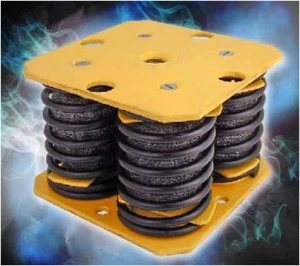Prevent spine compression PIVD
How does Ayurveda Panchakarma prevent spine compression PIVD ?
The objective of this article is to justify ayurvedic treatment for spinal cord compression. Lower backpain is a major complain among human beings. It is caused because of lumbar spondylitis, sciatica, slip-disc. The major involved factors are bone, muscles, tendon, ligament, cartilage, nerve etc.
Ayurveda pancha karma rehabilitates the pain and the herniated disc,  tones up the muscles, nerves, ligaments and helps to Prevent spine compression PIVD. Through the way it prevents prolapse of the intervertebral disc.
tones up the muscles, nerves, ligaments and helps to Prevent spine compression PIVD. Through the way it prevents prolapse of the intervertebral disc.
There are certain hormones which tone the muscles and make them tough. There are certain herbs described in Ayurveda which do the same. They tone the lumbar muscles and prevent spine degeneration.
Some Ayurvedic treatments rehabilitate and conserve the functions of the sacral nerve plexus. Subsequently this process strengthens the lumbar muscles and prevents the process of and ultimately spinal chord compression.

What is PIVD (Disc prolapse)? What happens in PIVD? What is the importance of Low Back?
What causes PIVD? What are the signs and symptoms of PIVD?
What is the treatment protocol of PIVD in Ayurveda?
What is the opinion of Ayurveda and Modern Medicine on PIVD?
How does Ayurveda Panchakarma prevents compression? What do we do at Astang Ayurveda?
What do we do at Astang Ayurveda?
We extend the hand of support and care to Prevent spine compression-PIVD. We understand the patient’s problem.
We believe in Ayurveda.
We and the patient are contemporary.
To fulfill all the guide lines of Ayurveda management of PIVD we get the patient admitted to our inpatient department.
We go for all Ayurveda clinical methodology and modern investigations like MRI, X-ray etc.Personal care, Handmade medicines, Strong practice of traditional specialized Ayurveda pancha karma treatment for PIVD,
Expertiztion over the particular treatment of PIVD,
Strict guidelines, PIVD diet lifestyle, PIVD yoga ,
Need based clinical and para clinical consultation bring us success and smile over the face of the patient.
PIVD management is the most successful practice at Astang Ayurveda. Patients come here for a lower back pain treatment. But lower back pain treatment is not our sole objective. We believe a proper education can give a sustainable lower back pain treatment to the patient.
Written by : Dr A P Nayak on Dt 22.3.2015
Revised on : Dt 30.04.2018
Related quick view:
For PIVD treatment, you can Contact our Astang Ayurveda hospital at Bhubaneswar, India.
For inquiry, Call us;
Call Now - 70081 76012
Call Now - 0674-2352797
or Mail us;
info@astangayurveda.com
drapnayak@gmail.com
Get Directions to Our Location on the Map
Ayurvedic Treatment for Spinal Cord Compression
What is PIVD (Prolapsed Intervertebral Disc)?
PIVD is a condition where the disc between the vertebrae slips out of place or herniates, causing pressure on the spinal nerves, leading to pain, numbness, and mobility issues, especially in the lower back.
What causes PIVD and spinal compression?
PIVD and spinal compression are commonly caused by factors such as poor posture, heavy lifting, aging, weak lumbar muscles, injury, or degenerative changes in the spine.
How does Ayurveda view PIVD?
Ayurveda sees PIVD as a condition that arises from an imbalance in Vata Dosha, which leads to the degeneration of muscles, ligaments, and cartilage, causing disc prolapse and spine compression.
What is the role of Panchakarma in PIVD treatment?
Panchakarma therapies, such as Virechana (purgation) and Basti (medicated enema), help detoxify the body, reduce inflammation, and strengthen the muscles, nerves, and ligaments surrounding the spine, thus preventing further disc prolapse and compression.
How does Panchakarma help prevent spinal compression?
Panchakarma helps by rehabilitating the affected areas, reducing pressure on the spinal cord, and toning the muscles and ligaments that support the spine. This prevents further degeneration and compression of the spinal nerves.
What are the herbal treatments used in Ayurveda to tone the lumbar muscles?
Ayurvedic herbs such as Ashwagandha, Guggulu, and Bala are known for their ability to strengthen muscles, ligaments, and nerves. These herbs are commonly used in the treatment of PIVD to prevent further degeneration and promote healing.
What lifestyle and dietary changes are recommended for PIVD patients?
Ayurveda advises a Vata-pacifying diet, which includes warm, nourishing foods, avoiding spicy, oily, and processed foods, and incorporating gentle exercises and yoga to strengthen the back and maintain flexibility.
Is bed rest required during the Ayurvedic treatment for PIVD?
Yes, bed rest is often recommended to allow proper alignment of the vertebrae and reduce strain on the affected disc. This helps promote healing while Panchakarma therapies and herbal treatments are administered.
Why does Ayurveda recommend avoiding spinal surgery for PIVD?
Ayurveda recommends non-surgical treatments because surgery does not address the underlying cause of disc prolapse and does not strengthen the muscles, tendons, and ligaments that support the spine, which could lead to recurrence of the problem.
How effective is the Ayurvedic treatment for PIVD at Astang Ayurveda?
Astang Ayurveda’s treatment protocol for PIVD is highly effective, with a focus on holistic healing through Panchakarma, herbal medicines, and lifestyle modifications. Patients experience long-term relief, improved mobility, and prevention of further spine compression without the need for surgery.
 tones up the muscles, nerves, ligaments and helps to Prevent spine compression PIVD. Through the way it prevents prolapse of the intervertebral disc.
tones up the muscles, nerves, ligaments and helps to Prevent spine compression PIVD. Through the way it prevents prolapse of the intervertebral disc.
